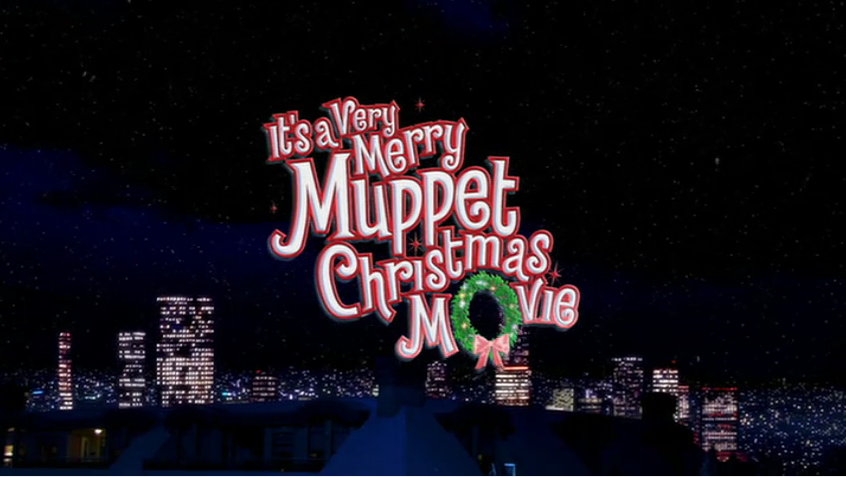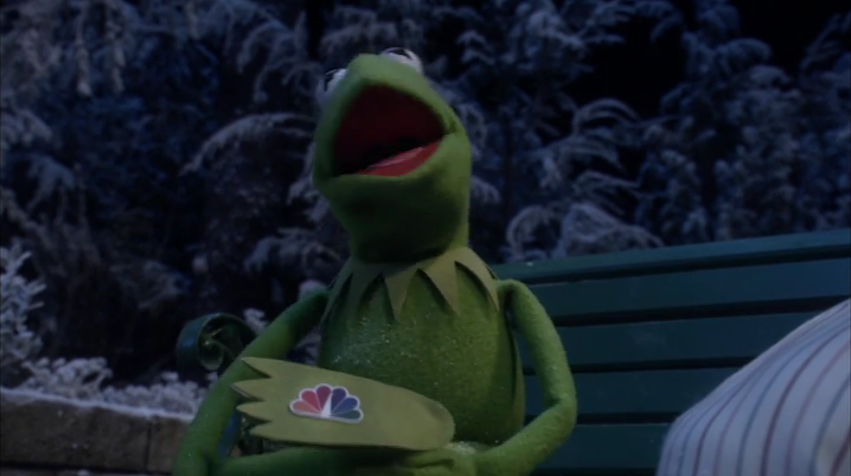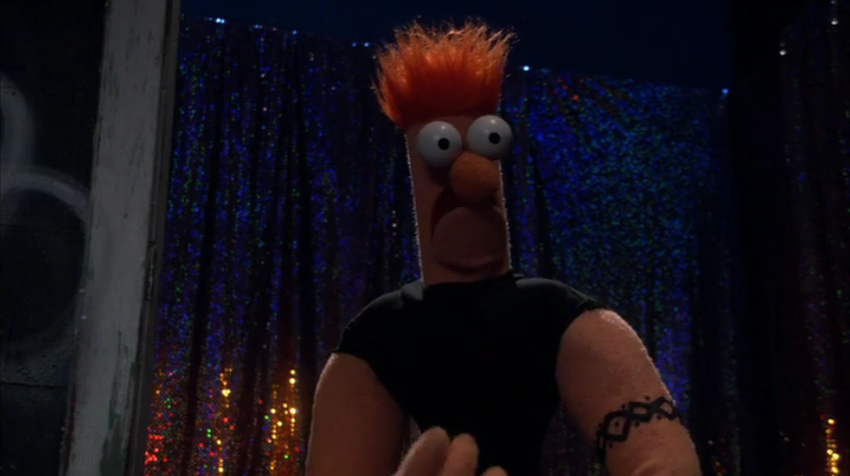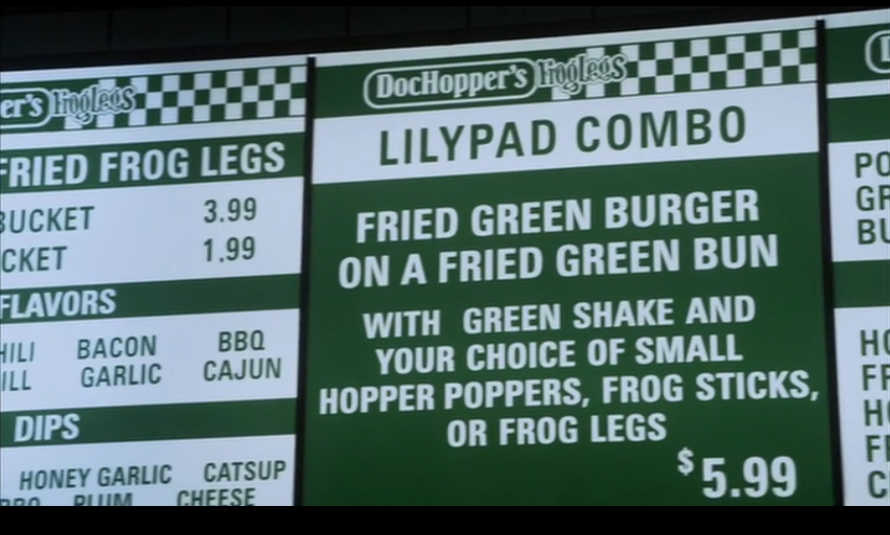IT'S A VERY MERRY MUPPET CHRISTMAS MOVIE REVIEW
One of the goals I had when I was reorganizing Carbon-izer.com is to diversify beyond "retail and restaurant with occasional video game stuff". Only For Whom the Southwestern Bell Tolls really deviated from the theme entirely. So now that Christmas is wrapped up, I'll try my shot at movie reviews. It's a Very Merry Muppet Christmas Movie from my memory, was a weird, off-color (at least compared to the fare in the last ten or so years prior), and not particularly good parody of It's a Wonderful Life, when it aired on NBC back in 2002. Because it only aired once (and I believe to some error, it was never taped), I never saw it in its entirety again for nearly another 20 years. It holds up surprisingly well, it's still a bit weird in parts, dated in others, but it's no worse than any of Disney's efforts at reviving The Muppets in a theatrical sense (yes, even the 2011 film).

Like most of the rest of the recent Muppet films at the time, the film is a take on It's a Wonderful Life, with Kermit being George Bailey, Joan Cusack's character being Mr. Potter, and David Arquette's character being Clarence the angel. The Muppet Theater has fallen across hard times and is about to be repossessed by the bank, with the Muppets performing one last show before they lose everything.
The villain is Rachel Bitterman, played by Joan Cusack, who intends to evict the Muppets, (or the "Muffins" as she calls them) by 6 pm (rather than midnight) Christmas Eve. Bitterman's plan is to convert the theater into "Club Dot", a nightclub, portrayed as this ultimate moneymaker despite clearly being in the same building, rather than tearing it down and everything else around it for a large condominium. This isn't even keeping in mind that most "trendy nightclubs" close after 1-3 years anyway. In the end, the Muppets don't get the money in time, but somehow Pepe the Frog King Prawn gets the Muppet Theater declared a historical landmark (despite being after 6 pm on Christmas Eve—good luck finding any government office open that late), and this is seen as a victory. Pepe declares that it means the "The theater can never be torn down or changed." and "will always remain the Muppet Theater", but historic buildings don't work that way. Bitterman could still convert it to a nightclub if she leaves certain architectural details intact, or the local historic designation is so strict that nothing can be repaired without tons of red tape. Either way, she could still kick the Muppets out if merely out of spite (historic designations don't save the business inside) or get some strings pulled to change things, and ultimately still win.

As the film was produced by NBC Studios (at the time, Disney had not yet acquired the Muppets from The Jim Henson Company), there's a few references to NBC's logo and theme (but curiously not General Electric, as 30 Rock did) as well as a sequence involving a cameo by the main cast of Scrubs (which was an NBC show at the time) as well as Fear Factor (also a then-contemporary NBC show). There's also this weird bit when Clarence, er, "Daniel" (Arquette) discusses the situation with the "The Boss" (played by Whoopi Goldberg):
"The Boss": You're just lucky SpongeBob isn't on right now.
Daniel: I love SpongeBob.
"The Boss": Do I care?
In addition to being out of character for Whoopi Goldberg's character as established so far, it almost sounds like another ill-conceived plug for an NBC-owned show, except SpongeBob was owned by Viacom at the time, which also (at the time) owned CBS, NBC's primary competitor! There's also a particularly strange sequence where, among other hijinks involving a Steve Irwin parody, a random steam bath in the streets, and a bunch of security lasers, Fozzie Bear (who got covered in green paint) is confronted by people dressed(?) as the Whos (in an obvious reference to the terrible live-action Grinch film starring Jim Carrey), which seems like another bit of corporate cross-over with the Vivendi/Universal Pictures side of NBCUniversal...until you realize the deal wouldn't happen for another two years.
Surprisingly, beyond the references to dead NBC shows and a few celebrities that aren't nearly as relevant (if even alive) there's not much beyond that in movie regarding the world of early-2000s parody/nostalgia, especially with the usual suspects, like outdated music acts, American flags, and references to Lord of the Rings, The Matrix, Beanie Babies, and Pokémon. Furthermore, unlike the typical hyped corporate Christmas movie, there's no product placement (again, beyond NBC and their shows), something even theatrical movies did, whether it's National Lampoon's Christmas Vacation and Marshall Field's (specifically, the lingerie saleslady within), or The Santa Clause and the Oscar Mayer "Weenie Whistle", yet there was no company like BATUS or Kraft General Foods (owners of the respective brands at the time) backing It's a Very Merry Muppet Christmas Movie to take a bit of the edge off the main backer NBC.
One of the real weak points of the film is its inability to decide what it is. Generally, Muppet movies can be sorted into two categories, the "Humans in a Muppet World" (general cartoon physics, extras are all Muppets, examples include Muppet Treasure Island and The Muppet Show) versus "Muppets in a Human World" (grounded physics, most characters are human, setting largely accurate to time) examples include Muppets Take Manhattan and The Muppet Movie). This movie gets the "Muppets in a Human World" treatment, and while such movies tend to be a bit whimsical (after all, no one in the Muppetverse bats an eye when talking to a bunch of sentient puppets), the references clearly indicate it's the early 21st century, but also has some weird sequences in it like the whole sequence involving the Whos, not-Steve Irwin, and laser beams, and as a result never feels quite "normal", nor going for the full "largely disregard the current year and culture" method that the 2011 film took.
While the film has a brief part played by William H. Macy that unfortunately goes nowhere, toward the end of the film we finally get to see what the world would be like if Kermit had never been born. The "alternate" reality has Bitterman controlling everything, with the Muppet Theater gone for Club Dot, and everyone in substantially worse positions (homeless, worse jobs, etc.), except for maybe Beaker, who goes from the hapless squeaky-voiced "assistant" to the blissfully sadistic Dr. Honeydew to a deep-voiced bouncer.

Of course, the impracticality of Kermit finding the fate of his friends (Rowlf and Pepe are missing) within 5 miles of each other is noticeable if you remember anything about the 1976 The Muppet Movie where Kermit finds everyone along the road, and clearly the movie hasn't forgotten the film either, making reference to the "Rainbow Connection" lyrics ("for the lovers, the dreamers, and you") as well as a reference to Doc Hopper, the villain of The Muppet Movie who seems to have gotten his wish for a successful chain of fried frog leg restaurants.

In the end, It's a Very Merry Muppet Christmas Movie stands as a decent made-for-TV Christmas movie, even if there are weird parts, plot holes, and trying too hard to be clever. It also marked the end of an era, as less than two years later, The Jim Henson Company sold the Muppets to Disney, meaning the Muppets would no longer be a free agent partnering with whatever corporate partner they could find for a truly diverse range of crossovers.
Back | Contact me